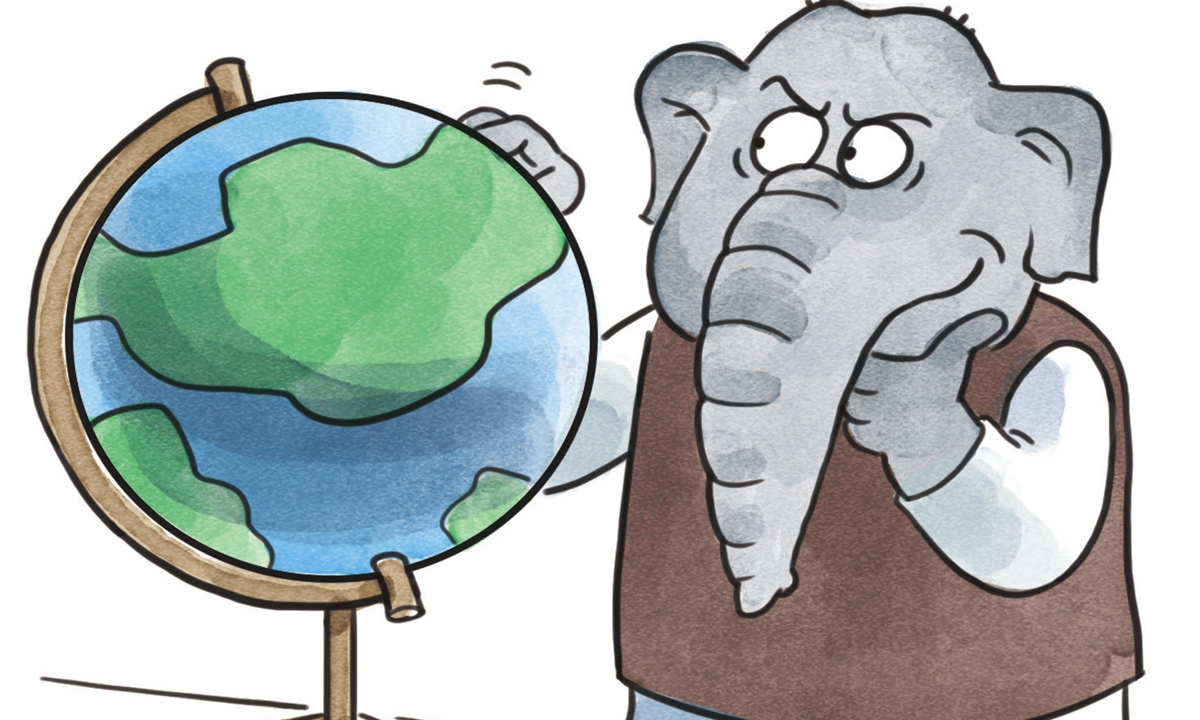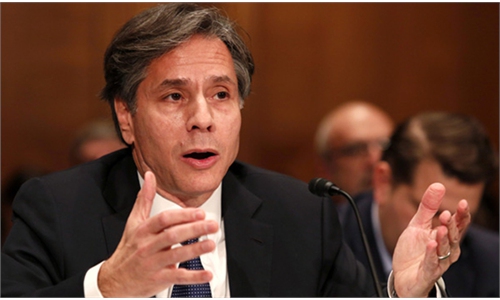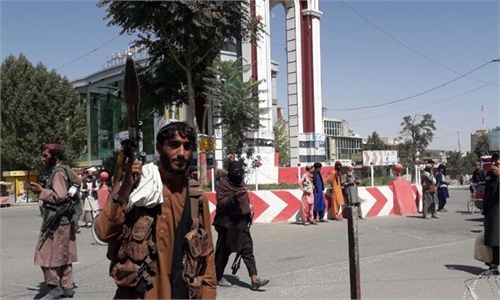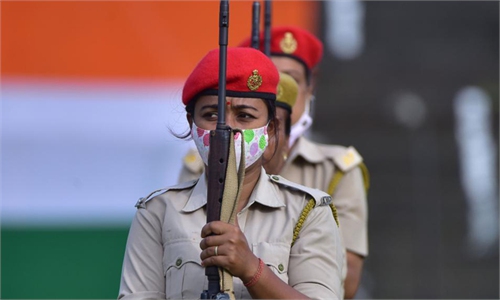
Illustration: Liu Rui/GT
A survey of the urban Indian youth by India-based think tank Observer Research Foundation, which was released on August 15, showed that 77 percent of respondents "rated the US as the country they trust the most among the leading global powers," while "the country that the respondents distrusted the most (77 percent) was China."The result can basically embody the views of Indian youth toward China and the US. It can also reflect how the whole of Indian society views the two countries. For over one year, tensions between China and India because of the border disputes have fueled a strong anti-China sentiment among Indians.
But it is believed that not many of the sampled 2,037 Indians have ever been to China, or have had dealings with China. How much they trust China or the US is mainly affected by the Indian government and media outlets, rather than India's real situation with China and the US.
As a response to China-India frictions, the Indian government has taken tough measures against China, and has proactively coordinated Washington's strategy to counter China, such as participating in the strengthening of Quad. To rope in India, the US has showed India its "goodwill," such as inviting India to attend the G7 summit held in Britain in June. Indian media outlets and India's academic circles have made a number of irrational remarks against China. They have also boasted about the high degree of importance the US has attached to India. The Indian public are deeply influenced by these policies and tricks, and it is not surprising to see them rate the US as the country they trust the most, and China they distrust the most.
Many Indian elites believe India has a wide range of reasons to move toward the US, but few to be close with China, especially from the perspective of the geopolitical struggle. For India, siding with the US can enhance its confidence in bargaining with China, which is obviously short-sighted.
In fact, from the perspective of India's long-term development, national stability and improvement of its international status, India shouldn't take a side between China and the US. It needs to cooperate with both the US and China. Cooperation with China is to some extent even more important as neighbors can't move away from each other.
From an economic point of view, China can do better than the US in cooperation with India in terms of boosting the latter's development, manufacturing industry and investment.
In recent years, India has been moving toward the US when it comes to geopolitics. A most obvious thing is that India has been proactively participating in the Quad. But for now, apart from participating in some meetings, and being invited to participate in the G7 summit, which gave India some false vanity, India has gained little in actual benefits from the US, economically or militarily.
Even if India is standing on the US' side now, there is no guarantee that India will get substantial support from the US if a real conflict, even a war, breaks out with China in the future. The US might sell some weapons to India, but will not send troops. In this regard, it will be absolutely wrong for India to think that tilting toward the US will gain the US' support to compete with China. Such a mindset will put New Delhi into a dangerous position.
The survey found "62 percent of respondents were of the view that India should abandon non-alignment in the case of rising US-China tensions."
The Non-Aligned Movement has helped New Delhi in improving its international status and gaining respect from the international community. Therefore, it is believed that the Indian government will not abandon such a diplomatic legacy. But it will form a quasi-alliance with the US, as India's status and image in the world will be damaged if it becomes a true US ally. In addition, becoming a US pawn is against India's endeavors of growing to be a great power and adopting an independent foreign policy.
India is a country with the ambition to develop into a global power. It needs to rely on itself regarding both development and security. Only with autonomy can New Delhi improve its international status and gain international respect. If it completely tilts toward the US, there will be more losses than gains for India.
The author is a senior research fellow with the Academy of Regional and Global Governance at the Beijing Foreign Studies University and president of the Chengdu Institute of World Affairs. opinion@globaltimes.com.cn



